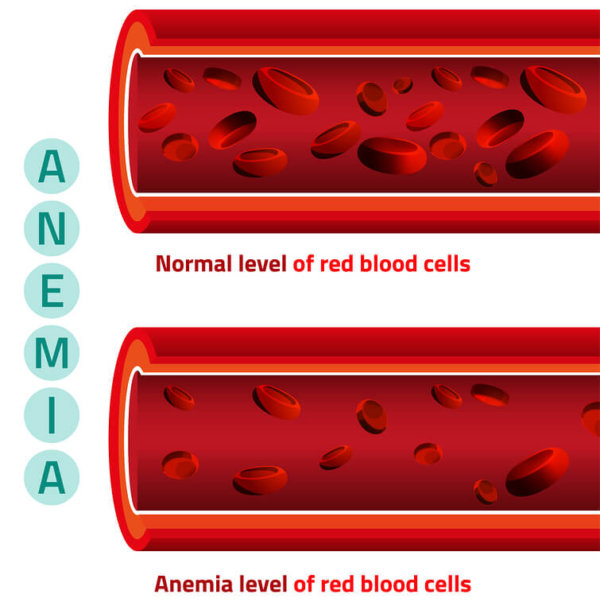
Long-Term Effects of Alcohol on the Body – Alcohol’s effect on the body starts from the moment you take the first drink. While the occasional glass of wine or two with dinner isn’t a cause for concern, the aggregate effects of drinking too much wine, beer, or spirits can eventually take a toll on one’s health.
The Long-Term Effects of Alcohol on the Body
Digestive and Endocrine Glands
Excessive alcohol intake can result in the abnormal activation of digestive enzymes produced by the pancreas. An accumulation of these enzymes can cause inflammation known as pancreatitis. Pancreatitis can become a chronic condition and lead to severe complications.
Inflammatory Damage
The liver is an organ that is integral in the breakdown and removal of harmful substances from the body, including alcohol. Prolonged alcohol use interferes with this process, and also increases one’s risk for chronic inflammation and liver disease. Scarring caused by this inflammation is called cirrhosis. The accumulation of scar tissue damages the liver, and as this occurs, it becomes less efficient at removing toxic substances from the body.
Liver disease is life-threatening and causes toxins and waste to buildup in the body. Women are at heightened risk for developing alcoholic liver disease because the female body is able to absorb more alcohol and usually requires a longer period of time to process it. Women generally exhibit liver damage more rapidly than men.
Sugar Levels
The pancreas plays a role in regulating the body’s insulin use and response to glucose. When the pancreas and liver aren’t functioning properly, this can result in low blood sugar, also known as hypoglycemia. A damaged pancreas may also hinder the body from producing enough insulin—this can lead to too much sugar in the bloodstream (hyperglycemia).
If a person’s body can’t regulate and balance blood sugar levels, he or she may encounter increased complications and side effects related to diabetes. For this reason, it’s vital that people with diabetes or hypoglycemia avoid excessive alcohol consumption.
Central Nervous System

One of the best ways to grasp the overall long-term effects of alcohol on the body is to understand how it impacts the central nervous system (CNS). Slurred speech is often among the first signs of too much alcohol. Alcohol can impede communication between the brain and body, making coordination and balance more difficult. This effect is why drinking and driving is illegal and can result in deadly outcomes.
Drinking excessively also makes it more difficult for the brain to create long-term memories, and reduces one’s ability to think coherently and make rational decisions. Over time, frontal lobe damage can occur—this is a region of the brain responsible for emotional regulation, short-term memory, and judgment, in addition to other essential roles.
Long-term, excessive alcohol abuse can also result in permanent brain damage, such as Wernicke-Korsakoff syndrome, a brain disorder that affects memory and other important functions.
Physiological Dependence
Many people who drink heavily develop a dependence on alcohol, a condition that causes unpleasant withdrawal symptoms upon cessation. Alcohol withdrawal can be extremely challenging to endure and even life-threatening. For this reason, people who become dependent often need a medical detox, followed by professional help, to break free from alcohol addiction.
Symptoms of alcohol withdrawal include:
- Anxiety
- Nervousness
- Shakiness
- Trembling
- Nausea
- Vomiting
- High blood pressure
- Irregular heartbeat
- Excessive sweating
Seizures, hallucinations, and confusion (delirium tremens) can manifest in severe cases of withdrawal.
Digestive System
The correlation between drinking alcohol and the digestive system might not immediately be apparent. Side effects often only emerge after there has been damage—the more a person drinks, the more damage the system will incur. Drinking can damage tissues in the digestive tract and impede the intestines from digesting food and absorbing key vitamins and nutrients, an effect that can result in malnutrition.
Heavy drinking can also cause gassiness, bloating, stomach pain, and diarrhea or painful bowel movements. People who drink excessively can develop ulcers or hemorrhoids (due to dehydration and constipation). In turn, ulcers can cause dangerous internal bleeding and can be fatal if not diagnosed and treated early.
People who drink too much alcohol are also at an increased risk for several forms of cancer. People who frequently consume alcohol are more likely to develop cancer in the mouth, throat, esophagus, breast, liver, or colon. Also, people who regularly drink and use tobacco together compound their risk for these cancers.
Circulatory System
Alcohol can significantly impact the health of one’s heart and lungs. People who are long-term drinkers face a more heightened risk of heart-related problems than people who do not drink, and women have a higher risk than men.
Circulatory system complications may include the following:
- High blood pressure
- Irregular heartbeat
- Poor blood circulation
- Stroke
- Heart disease
- Heart attack or failure
Additionally, difficulty absorbing vitamins and minerals from food can lead to anemia, a condition characterized by low red blood cell count and related fatigue.

Sexual and Reproductive Health
Drinking alcohol can initially reduce inhibitions and lead to more intense, albeit sometimes risky sexual encounters. Men who drink excessively are more likely to experience erectile dysfunction. Drinking can also hinder sex hormone production and over time, decrease libido.
Women who drink heavily may stop menstruating, which puts them at a higher risk for infertility. Women who drink alcohol while pregnant have an increased risk of premature delivery, miscarriage, and stillbirth. Moreover, women who consume alcohol while pregnant also put their unborn child at risk for fetal alcohol spectrum disorders (FASD).
Other complications may include:
- Learning impairments
- Chronic health problems
- Increased emotional problems
- Abnormalities in physical development
Musculoskeletal Health
Prolonged alcohol consumption decreases the formation of bone cells, and may cause thinner bones and increase the risk of fractures related to falls or injuries. Weak bones also heal more slowly after injury. Bones require new cell production and good blood circulation to stay healthy and strong.
When the bones do not get adequate nutritional support, they become fragile and develop osteoporosis. Alcohol also hinders the body’s absorption of calcium, a mineral that is essential for good bone health. Drinking too much alcohol can also result in muscle weakness, cramping, and eventually atrophy (wasting away or degeneration).
Immune System
Drinking to excess can impair the body’s natural immune system, making it more difficult for the body to fight off invading bacteria and viruses. People who drink excessively over a prolonged period of time are also more likely to contract pneumonia or tuberculosis than the rest of the population. In fact, about 10% of tuberculosis cases worldwide may be linked to alcohol consumption.
Treatment for Alcoholism
Effective treatment for drug addiction requires a comprehensive, integrated approach. To maximize the likelihood of an effective recovery, treatment should include therapeutic services essential to recovery, such as behavioral therapy, individual, group, and family counseling, education, medication-assisted treatment, group support, health and wellness programs, and aftercare planning services.
Recovery By The Sea employs caring addiction professionals who deliver these services to clients in partial-hospitalization and outpatient formats. Our goal is to provide all clients with the resources and support they desperately need to achieve a full recovery and enjoy long-lasting sobriety and well-being.
Contact us today to discuss treatment options. Discover how we can help you begin your journey to recovery and reclaim the happy and fulfilling life you deserve!
Related: Alternatives to Alcohol Use